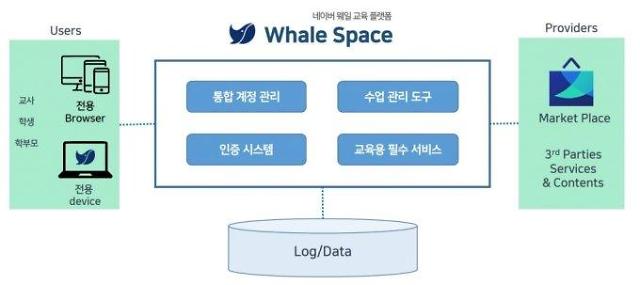
[Courtesy of Ulsan Coast Guard]
SEOUL -- The deep-rooted culture of eating whale meat attracted new attention in Northeast Asia after Japan officially resumed commercial whaling in defiance of international criticism after more than 30 years of limiting whale hunts to scientific purposes.
The South's Ministry of Oceans and Fisheries expressed serious concerns, saying it should not affect whale resources in South Korean waters. "The conservation and use of whales should be discussed at the International Whaling Commission (IWC) while analyzing their possible impact on whale resources in our waters," the ministry said in a statement.
There are 31 species of whales in South Korean coastal waters, including minke whales targeted by Japanese whaling ships, the ministry said. Japan's last commercial hunt was in 1986, but it has continued whaling for what it says are research purposes. In December 2018, it withdrew from the IWC moratorium on whale hunting.
Environmental groups in South Korea have accused Japan of catching 333 minke whales in the Antarctic Ocean during the 2017~2018 season. "The resumption of commercial whaling could also pose a threat to the maritime ecosystem on the Korean Peninsula," they said in a joint statement on June 19.
However, South Korea cannot escape international criticism due to the continued distribution and consumption of whale meat. Whale meat has long been a traditional delicacy in South Korea, and southeastern coastal towns have a number of whale meat restaurants where the average price of a 300-gram dish stands at 77,000 won ($66.2), higher than that of high-quality beef.
South Korea banned commercial whaling in 1986, but whales face threats from by-catch. The greatest threat of accidental death is stow nets used widely by fishermen who are allowed to keep and sell whales accidentally trapped in nets.
Hundreds of whales have legally been auctioned off every year. A coastguard report in January 2017 showed that 9,710 aquatic mammals were found dead in South Korean waters between 2011 and 2015. Over the same period, 6,550 finless porpoises were entangled in nets.
Cetacean bycatch has not dwindled thanks to South Korea's deep-rooted whale-eating culture. Illegal hunting of whales can result in up to three years in prison or up to 30 million won in fines, but critics argue there is a loophole through which poachers can operate despite an active campaign by environmental and animal rights activists.
A six-meter-long minke whale found entangled in a fishing net off the southern port of Yeosu on June 18 was traded at 60 million won.

[Yonhap Photo]
Activists say the sea off the south coast in South Jeolla Province is becoming a whale grave because the region's whale migration route was overloaded with fishing gear, resulting in the accidental catch of 47 whales in 2017 and 57 in 2018. They want a complete ban on the distribution of whale meat, saying heavy metals such as mercury, lead and cadmium have been discovered in whale meat.
From 2015 to June last year, 307 minke whales and 1,006 common dolphins were traded through designated cooperative markets which gather fishery products for commission selling, according to a report published in December last year by the Board of Audit and Inspection (BAI), a state body which inspects government agencies.
There has been no safety management by health authorities to monitor the level of organic pollutants and heavy metals contained in whale meat, the state board said, pointing to the consistent consumption of Cetacean meat, which has been traded with no proper safety management or inspection of heavy metals and other hazardous materials.




